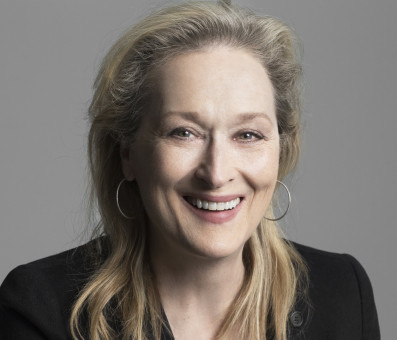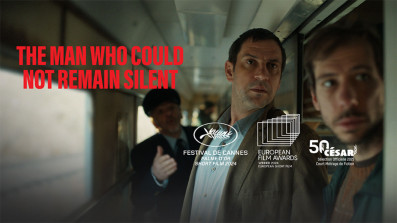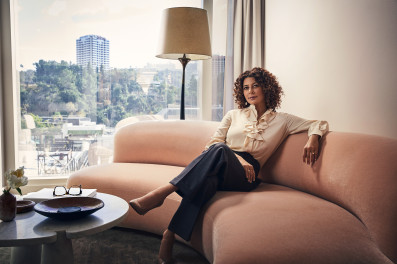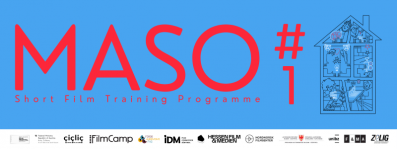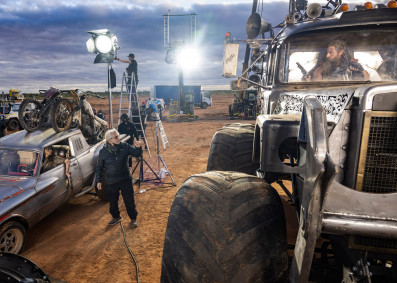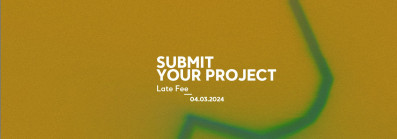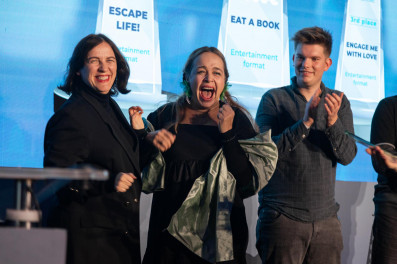Drugi Plan´s Third Papers and future Amnesia with German base BetaFilm
On the oncoming Season Three of Papers
With recent teasers on their Facebook Page, Ivica Đikić's and Dalibor Matanić's untamingly paced Papers grab steadily towards the third and final season. The president has claimed his throne, the victims have seamlessly departed and the show is to open on a dubious throne of country's first man with more than one secret to hide. In reality, it would seem the entire crew and, moreover so the producing company Drugi Plan, will have more reasons to celebrate. Namely, their naturalistically drawn series on the claustrophobic enviroment prevailing in the countries of Eastern Europe have caught the attention of two major streaming and producing companies. Papers made their pioneering run on Netflix with their two seasons peaking in viewership, aforementioned Đukić and Matanić as scriptwriter and director respectedly, whilst Success engraved their name as Croatia's first on HBO Adria. Interestingly, Marjan Alcevski was selected amongst over 400 admitted work for Adria's First Draft of 2017 call, later joined by Oscar winning Danis Tanovic as director.
Nowadays, hand in hand with German's BetaFilm some well-known faces of Papers' fame ( Branka Katić, Aleksandar Cvetković and Tihana Lazović) returning in the drama Amnesia focusing on drug and human trafficking (the filming starting in March on Plitvica Lakes is the tour trailing the Syrian refugee's way) and more underground plays of political origin. This time, a veteran newspaper responsible for Papers' scriptwriting Ivica Đukić is teamed with Emir Imamović Prike and Goran Gajić as director. This groundbreaking creative teaming will follow in the steps of Beta Film's successful collaborations with the likes of Agnieszka Holland's Burning Bush and the first co-protuction between Poland, Czech Republic and Ukraine, The Pleasure Principle.
WHAT IS BEHIND THE PAPERS?
When a wealthy construction mangan Kardum (Aleksandar Cvjetković) decides overnight to buy the local newspapers agency committed to the last stakes of investigative journalism and left-liberal risk when it comes to following gray areas of government or corruption, hell breaks loose in a small redaction. Paper’s finest journalist who took down at least two ministers from governmental seats, Dijana (Branka Katić) is at the heart together with the editor-in-chief Martin Vidov (Zijad Gracic), and his right hand Nikola Marić (Trpimir Jukić). Seemingly unconnected, another co-worker, Andrej (Goran Marković) is troubled by a hit and run car accident happening only the night before Paper’s handout was rumoured. To make the tightly knitted community even intense, Andrej’s marriage with an office colleague and wife Alenka (Olga Pakalović), had gone wrong, whilst Marić is balancing between newly found pseudo romance with the young journalist Tena (Tihana Lazovic) and his wife Dunja (Katarina Bistrovic-Darvas). Rarely and if ever in such seriousness, the homosexual relationship is bravely introduced with Vidov and his on-off stand with Oleg (Dražen Šivak)
Papers´ first season sees finely constructed noir-atmosphere of socio-reality clashing with unbalanced power confrontations. Though the comparison with Nordic, Swedish or Danish series of latter decades or one of the finest investigative series ever executed, the Wire (owning it partially is the pure construction of the Papers’ trilogy with Media-Politics-Judicial system and the episode’s intro beginning with a quote of one of the characters. With a wide array of those, interlocutions rave with transitions of servitude, the stellar performances crowning both seasons in a firm, crafted killing pace. Things can be paid off to be silenced or silenced never to turn up again, and this metamorphosis shines through every step of progress.
The rhythm of selective dictatorship owned to the best of the mafia settings following the past favours resurfacing as dangerous demands ensues through cleverly paced and finely framed clear composition leading the breaking of the media image to ruins, its own morality agenda increasingly more individualised by personal debts or fears that with professional code as characters each fall pray. Akin to the Nordic foreboding setting and main characters spread over as unapproachable with their own map of inquiry , the sturdy face of Rijeka’s architecture, with its stark contrast and paleness shares the atmosphere translated through coercing gloom of the camera, aiming in full at the post-transit melancholy and the society drowning in unresolved identities or bleakness of duties owned by government.
Kardum’s intentions are in no way benign or editorial. His help lands to serve his long-term acquanintace Tomasevic due to the latter’s oncoming Presidential run which opens in Season Two.Kardum’s pent up, almost wolfish appetite serves to disjoint office’s already severing ties, personal affairs and loyalties that fall far from the altruistic causes of justice. Brooding image of media’s sobriety in terms of neutral demand for information and a blindfolded stabbing along the way of investigation when so many of the questions' impossibility lie at the executives who are unable, unwilling or, rather always, both-to give answers. Similarly so, even a good intention may result in sin, death or incrimination, and the world closes on the lives of every major character individually. Metaphorically it is quite satisfactory executed with camera-work; as each character is bound to a breaking point in a particular episode, their head can be seen under water, eyes wide in bleak horror, for a few fleeting seconds.
There is a lot we take in as “provocative” if it Is only written in bolded letters without much truth or courage. The Paper’s, with or without private dysfunctional quality of most protagonists, have a deeply rooted need for taking of responsibility and manifesting it into public arena of the so-called free speech through some action that deems creation of a more tolerant, productive environment. It would be entirely unjust to hail its analytical energy as enigmatically bent on reprimand or sardonic allegory aimed to undermine the today’s political image. With the systematic greyness where any plurality, uniformity and tolerance of approach is dubiously making the little man empowered only in the Democracy Textbook of High-School, Papers are an attempted awakening, a call to questioning and, possibly, the start of evolution in the mental and acutely civil plan of existence, without false pretences to mask the re-evaluation that we see breaks the characters inside. It is also this guttural need to acknowledge the truth that characters are compelled to see through done that is much like the need of sanity and its approval, which begets a more heartfelt, almost pitiful connection they give us.
Backing up from a basic shaking of the outer image, Papers’ Second Season introduced a moreover theatrical setting and the behind-the-scene mechanism of deceit. Dragan Despot is remarkable as recurring Tomasevic, his wife (Ksenija Pajić) and daughter (Tena Nemet Brankov) playing difficulty the picture perfect family of the country’s future leader. On the other side of the ladder is Nives Ivanković with the energy unmatched as newly introduced President Jelena Krsnik, joined by with two presidential candidates on the bloodthirsting line with the other’s past. It is a macabre underground dance that, finally, proves one of the premises a transparent deceit. Namely, the question of democratically necessary political plurality might just be a myth of two colors clashing with the same pseudo-nationalistic background and indeed, this plurality is bewildering in creating a much-too-known illusion of a better tomorrow.
The governing hand can be bent unto cuffs, it can bleed and the ink coming on the next week is sometimes thicker than blood. One thing that remains is that the Papers will always be out. Next time on 02.03 at 21.00 on HRT.


